Te Kukunetanga: Developing Cycle of Life Research Programme
Te Kukunetanga aims to improve the pregnancy journey and outcomes for wahine and their whanau.
A women’s body undergoes unique progressive changes in shape and size throughout pregnancy and in the six months after the birth. While it's generally accepted that the physical changes experienced throughout this time affect the way women walk, balance, exercise and carry out daily tasks, we currently have limited insight into how these changes evolve across time, and how they differ between women.
By monitoring physical and functional changes of women throughout pregnancy and post-natal, we can develop foundational knowledge of the pregnancy journey, which will provide an opportunity to inform health-related practices for pregnant women.
Te Kukunetanga launch panelists
In the news:
Participant recruitment
- Development of a Musculoskeletal Model to Understand Changes in Lumbopelvic Pain during Pregnancy
Download the participant information sheet for this study and the consent form - Maternal Wellbeing and Exercise through Pregnancy - Online Survey - Click here for the survey
Download the participant information sheet for this Online Survey
Alternatively, you contact
- Dr Amy Kercher for Maternal Wellbeing and Exercise through Pregnancy - Online Survey, amy.kercher@aut.ac.nz, call +64 9 921 9999 (ext. 5186)
Te Kukunetanga research projects in progress
Te Kukunetanga research programme has 10 projects in progress. For details please click on the project titles below.
The Physical Evolution Through Pregnancy Project aims to improve health outcomes for pregnant women and their babies by monitoring changes in body shape and size, walking gait and balance throughout pregnancy and in the six months after the birth.
AUTEC ethics # 21/49
Principal investigator: Patria Hume
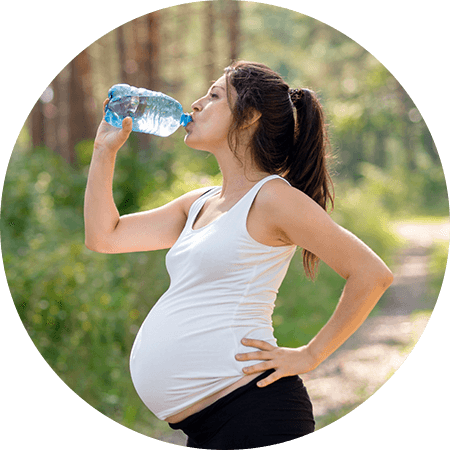
Participant recruitment - Physical Evolution through Pregnancy (PEP)
We have now finished recruiting wahine who are pregnant, have recently given birth, or are hoping to soon be pregnant for the Physical Evolution Through Pregnancy Project at AUT Millennium (Antares Place, Albany, Auckland). We are working on developing research findings which will be uploaded here.
Download the participant information sheet
Alternatively, you contact Dr Hannah Wyatt, email PEP@aut.ac.nz or call 021 0511 579
Associate investigators:
Dr Hannah Wyatt, Dr Kelly Sheerin, Dr Heather Donald, Dr Nimisha Waller, Associate Professor Dean Mahuta, Dr Sally Britnell, Dr Alyssa-joy Spence, Professor Susan Crowther, Professor Judith McAra-Couper, Dr Stacy Gillard-Tito, Professor Sarat Singamneni, Dee Holdsworth-Perks, Ajinkya Nafde, Chris Tillack, Christine Delaney, Judith Pullen Burry, Sabina Just, Oli Youlton, Alyssa Spence, Teea Francis, William Huang, Isabel Neal, Anya Zoellner, Jordan Rear, Oliver Viant, Eva Filleur, Hannah Creamer, Teea Francis, Dr Sarah-Kate Millar, Bridget Munro, Jane Cappaert, Emily Lawrence, Cailee Caldwell.
We aim to determine the relationship between health vitals (blood pressure, temperature and oxygen saturation) and physical activity during pregnancy.
- Dr Shilin Deng, Dr Hannah Wyatt, Professor Patria Hume, Dr Sally Britnell
(AUTEC ethics # 21/49)
As a free and easily accessible form of exercise, running is popular among the general population. We aim to understand how changes during pregnancy influence running gait and the loading experienced, with the purpose of providing clear recommendations for engagement with running throughout and beyond pregnancy.
AUTEC ethics # 21/401
Principal investigator: Dr Hannah Wyatt
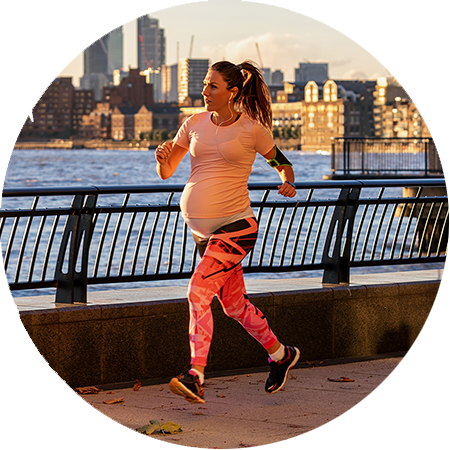
Associate investigators:
- Dr Kelly Sheerin - AUT Millennium SPRINZ Clinics Manager and Senior Lecturer
- Dr. Kim Hébert-Losier – University of Waikato Senior Lecturer and biomechanics lead
- Professor Patria Hume – AUT SPRINZ Professor and PEP lead investigator
- Isabel Neal – AUT SPRINZ placement student
- William Huang – AUT SPRINZ placement student
- Teea Francis – AUT SPRINZ placement student
- Oliver Viant – AUT SPRINZ placement student
The project will examine maternal psychological well-being throughout pregnancy and the post-natal period. We will look at the connections between mood, anxiety, social support, attitudes toward exercise, mother’s sleep, baby’s sleep and patterns of exercise and activity. We aim to be able to improve mothers’ engagement with exercise in the post-natal period, and to improve their wellbeing and mental health.
Recruiting now for this online survey - Click here for the survey
AUTEC ethics #22/99
Principal investigator
- Amy Kercher
Associate investigators:
- Liesje Donkin
- Hannah Wyatt
- Patria Hume
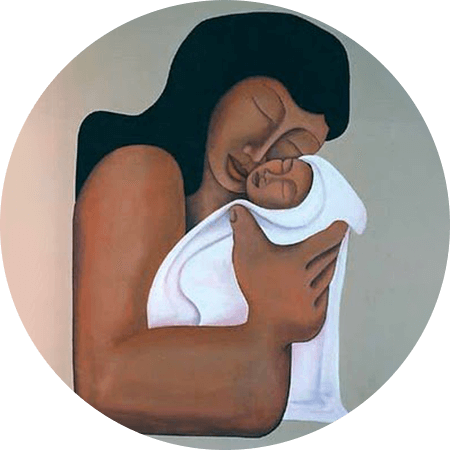
The consumption of a rich-nutrient diet is especially important during pregnancy. Although a variety of whole foods are optimal, ensuring all nutritional needs are met during pregnancy can be challenging. We aim to increase our understanding of women's food consumption during pregnancy, with the purpose of enhancing education and strategies for optimising nutrition.
We are working on developing research findings which will be uploaded here.
AUTEC ethics # 21/144
Principle investigators:
- Heather Donald
- Hannah Wyatt
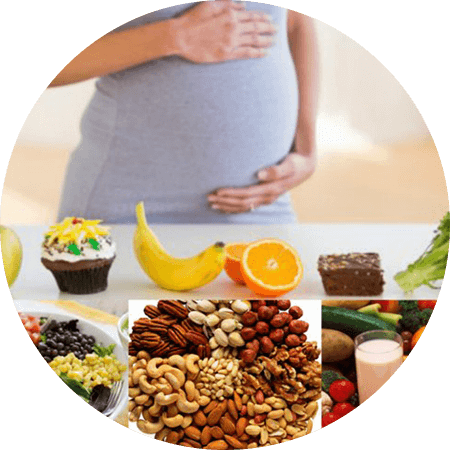
We aimed to gain insight into women’s experiences of running during pregnancy, including running habits, musculoskeletal discomfort and injuries, and the timing and reasons for modification or cessation of running. 3,102 women have completed the survey and data analysis is currently being conducted.
- Dr Kelly Sheerin, Dr Hannah Wyatt, Professor Patria Hume, Dr Kim Herbet-Losier
(AUTEC ethics # 21/401)
We aim to understand how body morphology changes during pregnancy affect balance during pregnancy.
- Dr Hannah Wyatt, Professor Patria Hume, Dr Kelly Sheerin
(AUTEC ethics # 21/49)
We aim to build Māori participation in research, engagement with Māori stakeholders, capacity and capability building, relationship development, networking, information events.
- Associate Professor Dean Mahuta, Professor Patria Hume, Dr Hannah Wyatt, Dr Stacy Gillard-Tito
We aim to provide evidence-based best practice recommendations on physical activity/exercise during pregnancy for New Zealand women and those who provide healthcare during pregnancy. The guidelines may be used to encourage women to achieve the levels of physical activity/exercise that are recommended for optimal health during pregnancy and in the postpartum period; and provide health professionals with evidence-based guidance on optimal physical activity behaviours during pregnancy and in the postpartum period.
- Professor Wendy Brown, Professor Patria Hume, Dr Katie Palmer Du Preez, Dr Hannah Wyatt, Dr Olivia Wright.
We aim to improve our understanding of the physical challenges in relation to movement and exercise throughout the childbirth year and inform acceptable educational resources for childbirth care and practice.
We are working on developing research findings which will be uploaded here.
- Dr Hannah Wyatt, Dr Nimisha Waller, Professor Patria Hume, Professor Susan Crowther, Associate Professor Dean Mahuta, Dr Kelly Sheerin and Teea Francis
(AUTEC ethics # 22/319)
This project will investigate the intricate relationship between pregnancy emotions, and these physiological aspects, that will offer insight into a holistic experience of expectant women. It is our aim to empower women by developing emotional awareness and regulation tool that supports women’s independence and health during pregnancy and childbirth.
Recruiting now for this in-person study - click to register your interest
AUTEC ethics #23/129
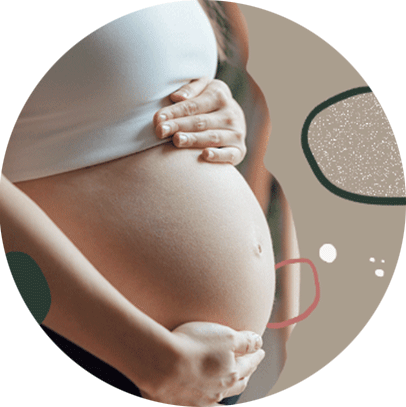
Download the participant information sheet
Principle Investigator:
- Sabina Just
Associate investigators:
- Dr Hannah Wyatt
- Dr Nimisha Waller
- Dr Ed Maunder
- Professor Peter McNair
We invite you to participate in a study aimed at understanding and alleviating lumbopelvic pain during pregnancy. This common issue affects many pregnant women, causing discomfort in the lower back and pelvis, and can interfere with daily activities and sleep.
Our research, conducted by experts from the Auckland Bioengineering Institute, AUT's Sports Performance Research Institute, and the University of Canterbury, seeks to develop a detailed musculoskeletal model to better understand these pain mechanisms. By participating, you'll help us gather crucial data through safe, non-invasive methods like 3D body scanning and motion capture. Your involvement will contribute to developing effective interventions to improve the well-being of pregnant women. Plus, you'll receive a $20 gift voucher for each visit towards your travel costs.
You are invited to take part in this study, which aims to develop a musculoskeletal model to better understand the changes in lumbopelvic pain during pregnancy. This research is collaboratively conducted by researchers from the Auckland Bioengineering Institute (ABI), the Sports Performance Research Institute New Zealand (SPRINZ) of the Auckland University of Technology (AUT) and The University of Canterbury. The study will be overseen by Dr Julie Choisne, a senior research fellow and primary investigator at the ABI, Prof. Patria Hume, a specialist in biomechanics and kinanthropometrist, Dr Hannah Wyatt, a specialist in gait and injury prevention biomechanics and Mr Jie Chen, a PhD student at the ABI.
Why are we doing the study?
Pain in the lower back, pelvis, or both, which are collectively called as lumbopelvic pain, is the most common musculoskeletal complaint during pregnancy. Pain in these regions typically increases with advancing pregnancy, interfering with work, daily activities and sleep.
Through computer simulation, we can estimate the lumbopelvic joint and muscle loads of pregnant women during functional activities (e.g., walking, standing up and sitting down) to better understand the development of lumbopelvic pain during pregnancy, and potentially enabling us to predict the onset and severity of pain. However, the computer model of pregnant women we have now is not adequate. Unfortunately, it doesn't consider how pregnant women move and how muscles change during pregnancy, even though they play a crucial role in the calculation of joint loads. Therefore, we have developed a more detailed pregnancy-specific model to understand contributors to lumbopelvic pain so interventions can be developed and assessed adequately.
We will use a 3D whole-body imaging scanner to get your body shape at each of your visits. The 3D body imaging scanner uses safe light to capture the external shape of your body and has been used in various other projects by our staff and at other institutions. This technology is now widely used for clothing shopping and muscle to fat ratio measurement at the gym and has also been used for the study of over 2,000 women throughout pregnancy. With these 3D images, we'll create a new model that shows how a woman's body changes during pregnancy.
Understanding how pregnant women move is important to understanding the loads applied to the joints throughout computer modeling. To investigate the movement and muscle forces needed for each task, we will use motion capture cameras that can track retroreflective markers moving in space (just like in the movie and gaming industry). Therefore, small reflective markers will be adhered to some specific parts of your skin so we can track your movements. You will be asked to walk and do some simple daily life activities such as lifting a light object off a stool and then stand-to-sit-to-stand. From this data, we can calculate things like how your joints rotate and move, and even estimate the forces of the muscles and joint loads inside your body during these activities. Don't worry, the camera can only detect the marker location and will not record any other information that could identify you.
What will participation in the study involve?
The study will involve longitudinal data collections of participants pre- (if feasible), during- and post-pregnancy. You will be invited to attend at least 3 times at AUT Millennium, one time in each trimester (1-12 weeks, 13-26 weeks, and 27 to the end) of your pregnancy. You will also have the option of attending a visit before becoming pregnant if you are trying to conceive and a visit within 6 months after delivery. The data collection process will be the same for each visit.
The visit involves three data collection phases: questionnaires, 3D whole-body scanning and movement analysis.
- You will first have your heart rate, temperature, and blood pressure checked to ensure that you are safe to take part. This data will not be stored or used for the research, but it will act as a pre-test health check. If you qualify for the study, you will be asked to fill out a questionnaire about pregnancy-related lumbopelvic pain.
- You will then be guided to the next room (side-by-side, approximately 2 steps between) for the 3D whole-body imaging, which offers a private space for you to change into the standardise data collection wear – a sports bra and shorts. The room has an automatic locking door, and access is limited to specific personnel. The sizes of the apparel will be revised as the participant progresses through the study. A set of 27 of reflective markers (little grey balls of 6.35 mm diameter) will be placed by a trained researcher (can be requested to be female) on your skin. You will then be directed to the 3D imaging pose and scanned (1 minute) by the 3D scanner. The 3D body scanner is entirely radiation-free, ensuring that no harmful exposure affects the mother or the fetus, providing a safe, non-invasive solution for capturing the body shape.
- After 3D scanning, you will be escorted to the next room for motion capture. You will be given a dressing gown to wear for the transition from one room to the other. Before the motion capture session, you might be randomly selected to get surface electromyography (EMG) placed on your belly muscle and back to record your muscle activity. This process involves placing small electrodes on the skin to measure the electrical activity of your muscles while you perform certain movements. The electrodes will only be placed on the skin surface and will not cause any harm or penetration. These selected participants will comfortably lie down on the examination bed and get 12 surface electrodes placed on the skin by a trained female researcher. Participants during the 1st and 2nd trimesters will be then guided by guardians and lab operators to walk overground as fast as possible to record a baseline signal for the EMG electrodes. The operator will observe the participant for any signs of discomfort or adverse reactions throughout the electrode placement or data collection process. We will place an extra set of 22 reflective markers on your skin at specific landmarks on your body to record your movement. The markers' trajectories will be tracked by several cameras. The markers will be attached to the skin using double-sided hypoallergenic tape. This technology captures body movement without emitting any radiation or direct impact on the body. During the motion capture, we will ask you to walk barefoot several times. We'll also guide you through some extra movements, such as lifting an object off a stool and stand-to-sit-to-stand. You can talk during the experiment and give us verbal statements of discomfort at any moment. You can request to stop the collection process or not complete certain movements at any point without giving a reason. The entire visit will last no longer than 2 hours. Once the data collection is completed, the markers (and electrodes if selected for EMG recording) will be carefully removed from your skin, and you will be escorted back to a room where you can change back into your own clothes. You will be given the opportunity to discuss your experience and ask any final questions you may have.
What are the benefits of this study?
You will receive the results of this study if you desire to. You will be offered a $20 gift voucher at the end of each visit. This study will provide researchers and clinicians with a better biomechanical understanding of pregnancy-related lumbopelvic pain, also providing ideas for physios and midwives to prevent and treat lumbopelvic pain during pregnancy. Ultimately, the goal is to enhance the pregnancy experience by alleviating pain and supporting the well-being of pregnant mothers.
Study Investigators
- Jie Chen (Research student) UoA
- Dr Julie Choisne (Principal investigator) UoA
- Professor Patria Hume (Co-investigator) AUT and UoA
- Dr Hannah Wyatt (Co-investigator) UoC
HDEC Ethics Approval #: AH27603











Contact us
Professor Patria Hume
PEP principle investigator
pep@aut.ac.nz
Our team
This research programme has been co-created with iwi, interdisciplinary researchers and people from various backgrounds and ethnicities.
Evidence based guidance for pregnant wāhine
We provide practical tips based on information from research studies.
Study with us
We are keen to collaborate with postgrad students who want to study how to improve health outcomes for pregnant women at master’s or doctoral level. Our supervisors are experienced in a range of fields.